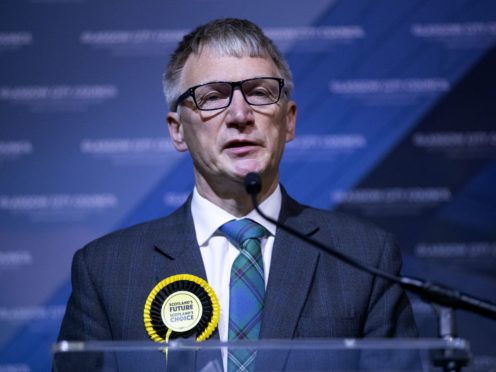The Scottish Government has declared it will set up its own “green ports” after accusing UK ministers of failing to provide guarantees about fair pay and set-up funding.
Scotland’s Trade Minister, Ivan McKee, announced plans to set up independent freeports that may offer tax breaks and incentives, rather than aligning with the model for other UK sites.
Mr McKee accused the UK Government of trying to “dilute a strong commitment to fair work” by not committing to pay the real living wage of £9.50 an hour as well as other net-zero conditions.
He had previously insisted that the Scottish Government would not support the freeport plans without commitments for fair work and certain commitments relating to net-zero targets.
Under the proposed agreement, which now appears to have been abandoned, Scottish ministers wanted two “green ports” that would be special economic zones offering tax breaks and lower tariffs for businesses as a part of the UK Government’s “levelling up” agenda.
The Scottish Government does not have the legal power to exempt goods from tariffs as it is a reserved policy area so cannot be included in any Scotland-specific green port model.
The Secretary of State for Scotland, Alister Jack, had argued that if Scotland were to develop the freeports alone, the Scottish Government would only have enough funding for one site and tax rules would leave Scotland’s versions at a competitive disadvantage.
But Mr McKee has now said the conditions he imposed – that operators must have fair work practices and contribute to the transition to net-zero carbon emissions – have not been met.
A letter from Mr Jack to Mr McKee sets out the UK Government’s offer for Scottish freeports but explicitly states that any reference to the real living wage be removed from any bidding requirements.
The “very generous offer” included tax relief of up to £120 million over five years at the two sites, with capital allowances, employers’ national insurance contributions and customs benefits set to be exempt from tax, Mr Jack said.
Funding would have been allocated through the Barnett formula, with approximately £5 million having already been provided to the Scottish Government and an additional £13 million anticipated to set the projects up.
Mr Jack added that the location of the freeports would have been based on a “robust and impartial assessment of bids”, with a Scottish Government minister invited to sit on the decision panel.
The Scottish Secretary’s letter stated: “We have an outstanding opportunity before us to work together to deliver a programme with huge potential to grow the Scottish economy and create high-quality jobs.
“I believe the people of Scotland will be unforgiving if we fail to seize it. The consequences of us not working together are clear. Firstly, our chances of delivering two freeports rather than one are vastly reduced.
“Should the Scottish Government not agree to become an investing partner in the scheme, the strong likelihood is that the seed capital available would support the creation of only one freeport.
“In addition, the absence of Scottish Government support would deny the Scottish freeport a full array of benefits, such as reductions in Land and Building Transaction Tax, putting it at a competitive disadvantage compared with freeports in England.”
Commenting on the Scottish Government’s decision to reject the offer, Mr McKee said: “I have been clear that any model implemented in Scotland must include a firm commitment to conditionality around fair work and net zero. These are central tenets of Scotland’s future economy and principles we cannot compromise on.
“The UK Government’s offer does not reflect this, provide fair set-up funding or, indeed, recognise the vital role the real living wage plays in secure pay and employment contracts.
“It is difficult to comprehend why UK Ministers would seek to dilute a strong commitment to fair work, including payment of the real living wage, when seeking to implement their freeport policy in Scotland.
“With just weeks to go before Cop26, the UK Government should be working with us to help deliver a net-zero economy given both the Scottish and UK Government have statutory targets to meet on reducing our carbon emissions.
“The Scottish Government, therefore, has no option but to take forward plans to further develop our green port model which meet the specific needs of Scotland’s economy.”
In response, a UK Government spokeswoman said: “The UK Government’s freeport model embraces the highest employment and environmental standards.
“It is disappointing that despite strenuous efforts to work together, the Scottish Government is choosing not to work with us to bring freeports to Scotland.
“There is a strong appetite from businesses and it would boost the economy and create jobs.
“We will continue to work to ensure that Scotland can enjoy the benefits of the model.”
